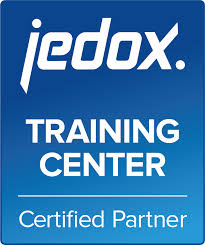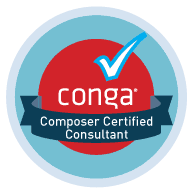Discover the essential components of the Services Value Chain.
Learn about actionable insights for enhancing each phase.
Introduction
In the competitive landscape of service-based businesses, optimizing every stage of the value chain is crucial for achieving success and delivering exceptional client experiences. This guide explores the essential components of the services value chain and provides actionable insights for enhancing each phase.
Sell: Driving Business Growth
The “Sell” phase marks the beginning of the client journey, focusing on attracting and converting prospects into loyal customers. Lead generation is key, using diverse channels like digital marketing, networking, and referrals to target the right audience effectively. A well-developed sales strategy is essential, involving a deep understanding of client needs, offering tailored solutions, and presenting a compelling value proposition. Additionally, client engagement plays a critical role; building strong relationships through personalized communication, showcasing your expertise, and addressing client pain points effectively sets the stage for lasting partnerships. A strategic approach to selling not only brings in new business but also lays the foundation for long-term client relationships.
Staff: Building a Strong Team
The success of service delivery heavily depends on the “Staff” you employ, as their skills, motivation, and effectiveness directly impact client satisfaction. Recruitment should focus on hiring individuals with the right skills and cultural fit, selecting the best candidates through thorough interviews and assessments. Investing in training and development keeps the team up-to-date with industry trends, enhancing their skills and encouraging continuous learning and professional growth. Employee engagement is equally important; fostering a positive work environment by recognizing achievements, providing constructive feedback, and offering career development opportunities ensures that your team remains motivated. A well-trained and motivated team is crucial for delivering high-quality services and achieving organizational goals.
Manage: Ensuring Operational Excellence
Effective management practices are critical for streamlining operations and delivering high standards of service. Process optimization should be a continuous effort, with regular reviews and refinements to eliminate inefficiencies, implement best practices, and utilize technology to improve workflow. Performance monitoring involves tracking key performance indicators (KPIs) to assess the effectiveness of strategies and using this data to drive continuous improvement. Client relationship management is also a vital component, maintaining strong relationships through consistent communication and addressing any issues promptly to ensure client satisfaction. Efficient management ensures that operations run smoothly and that client expectations are consistently met.
Work: Delivering Quality Service
The “Work” phase involves the execution of service delivery, where plans turn into action and the client experience is shaped. Effective task management is essential, organizing and assigning tasks to ensure timely completion, often with the aid of project management tools that facilitate collaboration and track progress. Quality control processes must be in place to maintain high standards, with regular reviews to ensure that service delivery meets or exceeds client expectations. Proper resource allocation is also critical, ensuring that resources are wisely allocated to optimize efficiency and that your team has the tools and support needed to perform their tasks effectively. Delivering high-quality work is essential for client satisfaction and long-term success.
Bill: Streamlining Billing Processes
The “Bill” phase focuses on invoicing and financial transactions, where efficient billing practices are vital for maintaining cash flow and client satisfaction. Transparent invoicing is crucial, creating clear and accurate invoices that reflect the services provided and ensuring that the billing process is easy for clients to understand. Utilizing automated billing systems can help streamline the invoicing process and reduce errors, incorporating features like electronic invoicing and payment reminders. Pricing strategies should be fair and competitive, aligning with the value of your services and market conditions. Effective billing processes help maintain financial health and build trust with clients.
Collect: Ensuring Timely Payments
The final component of the value chain is “Collect,” which involves managing accounts receivable and ensuring timely payments. A system for payment follow-up is essential, implementing a process for sending reminders and communicating with clients to resolve any outstanding issues quickly. Offering flexible payment options can accommodate client preferences and make it easier for them to pay on time. Establishing a clear collections process is also necessary for handling overdue accounts, including policies for late fees and account management to encourage timely payments. Efficient collections practices ensure steady cash flow and minimize financial disruptions.
Conclusion
Optimizing each component of the services value chain—Sell, Staff, Manage, Work, Bill, and Collect—is essential for achieving operational excellence and delivering outstanding client experiences. By focusing on these key areas, businesses can streamline their processes, enhance efficiency, and drive long-term success. Embracing these practices will help build a resilient and thriving service-based business.
Services-based Customers we work with
Get your FREE copy of the Services Value Chain Overview eBook
Simply provide your name and business email address and we’ll send you a FREE copy of the Services Value Chain Overview eBook.




